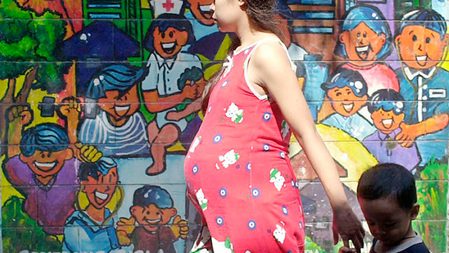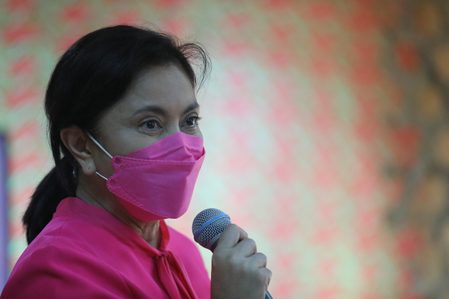SUMMARY
This is AI generated summarization, which may have errors. For context, always refer to the full article.
![[OPINION] New WHO abortion guideline makes clear: Quality abortion care must be accessible](https://www.rappler.com/tachyon/2021/09/reuters-not-ovary-acting-latin-america-abortion-march.jpg)
On March 9, the World Health Organization (WHO) released the consolidated Abortion Care Guideline which updated and replaced all WHO guidelines on abortion care. Focusing on scientific evidence, human rights, and the quality of abortion care, WHO calls for effective, efficient, accessible, acceptable, equitable, and safe abortion care without discrimination. The guideline lists law and policy recommendations on seven areas including full decriminalization, repeal of laws and regulations restricting access, and protection of access from barriers created by conscientious refusal.
The release of the guideline provides an opportunity for the Philippines government to meet its constitutional obligation to the right to health and make quality abortion care accessible to all.
The government cannot continue to be complicit in violating Filipinos’ fundamental rights by restricting access to an evidence- and human-rights based health intervention.
Abortion as an essential health intervention
Through the guideline, WHO reinforced what Filipino advocates have long been raising i.e., abortion is an essential and safe reproductive health intervention. Comprehensive abortion care which is the “provision of information, abortion management (including induced abortion and care related to pregnancy loss), and post-abortion care” must be integrated into all levels of the health system.
In issuing its recommendations, WHO ensured that human rights are incorporated in health-related programs and policies. It noted that delayed or denial of access to abortion violates human rights. It reaffirmed that criminalization of abortion disproportionately affects those who are already in vulnerable situations. Further, criminalization does not reduce the need and demand for abortion; it only makes access to safe abortion difficult.
Decriminalization of abortion
The WHO guideline strengthened the call of local advocates for ensuring abortion access for Filipinos and removing all criminal penalties associated with it. WHO strongly recommends for the full decriminalization of abortion which it has defined as “removing abortion from all penal/criminal laws, not applying other criminal offences (e.g., murder, manslaughter) to abortion, and ensuring there are no criminal penalties for having, assisting with, providing information about, or providing abortion, for all relevant actors.” As the push for the full decriminalization of abortion in the Philippines gains momentum, this recommendation is timely and significant.
An online petition calling for repeal of the abortion provisions under the Revised Penal Code of 1930 has received almost 30,000 signatures. Advocates have launched a draft bill repealing the penal provisions and providing for a positive legal framework to ensure abortion access. Presidential candidates have been asked about their stance on abortion. Senatorial candidates have also weighed in. Some of them have been explicitly in full support of decriminalization of abortion. Most are still justifying their opposition to all or some forms of abortions based on their personal beliefs instead of health and human rights standards. These statements have attracted hundreds of thousands of comments and reactions online. Irrespective of an individual’s opinion on abortion, it is now clear that abortion has become a key part of our national public discourse. Given the long history of criminalizing and stigmatizing abortion in the country, this is significant progress.
Ensuring abortion access
WHO also strongly recommends against laws and policies that limit abortion only on certain grounds or as an exception to existing criminal provisions on abortion. Abortion should be made available on the request of the pregnant person regardless of their reason. As governments work towards ensuring abortion access on request, WHO listed the conditions upon which a grounds-based abortion legal framework may still be human rights compliant. This includes ensuring that the grounds are clearly defined and applied, and at the minimum, these grounds should include situations when carrying the pregnancy to term would cause substantial pain and suffering e.g., non-viable pregnancies or those resulting from rape, and pose as a risk to the life or health of the abortion seeker.
In 2019, the government reported to the UN Human Rights Committee that abortion when necessary “to protect the life and health” of a pregnant person may be justified under the current penal laws. Despite this acknowledgement, the government has neither made any effort to ensure abortion access on this ground nor addressed misconceptions on the legal grounds for abortion. Many still assume that all abortions are illegal. A climate of fear of the law and stigma around abortion persists among abortion seekers and also among health workers who hesitate to provide abortion even when the life or health of the pregnant person is at risk.
Provision of post-abortion care at all times
The restrictive laws on abortion have also contributed to numerous reports of denials, delays, and abuses for those seeking medical care for abortion-related complications. Under the WHO guideline, post-abortion care which is the “provision of services after an abortion, such as contraceptive services and linkage to other needed services in the community or beyond…[and] can also include management of complications after an abortion” must be available at all times without any risk of criminal penalties.
The right to access post-abortion care has been guaranteed under national laws and policies such as the Magna Carta of Women, Responsible Parenthood and Reproductive Health Act, and Department of Health Administrative Order 2018-0003. However, because of the restrictive laws on abortion, access to and the provision of quality and humane non-judgmental care have yet to be fully realized. Studies have found that the lived barriers and challenges of Filipinos in accessing care include the lack of information and low awareness on when and where post-abortion care may be availed of, discriminatory treatment from health workers, and fear of arrest and imprisonment for an illegal abortion when care is sought.
Other important law and policy recommendations by the WHO include the removal of medically unnecessary requirements such as a mandatory waiting period which is defined as “a requirement imposed by law or policy, or in practice, to wait a specified amount of time between requesting and receiving abortion care;” the provision of abortion care without the need for authorization of any other individual, body, or institution; and regulation of who may provide or manage abortion consistent with WHO guidance.
Access to abortion care must also be protected against conscientious objection or refusal defined as “the practice of healthcare professionals refusing to provide abortion care on the basis of personal conscience or religious belief.” This is crucial in the Philippines where even in cases of post-abortion care, there have been cases where health workers have refused to provide care based on their personal beliefs. When abortion is decriminalized and should the government allow conscientious objection, the continuity and quality of abortion care can only be guaranteed when effective regulatory, oversight, and enforcement frameworks are in place to ensure that refusals of care do not hinder access to abortion care.
For Filipinos to fully exercise their human rights, they must be able to make free and informed decisions and have access to abortion care. They must be able to live in an environment where abortion seekers and providers will no longer face any fear of arrest, prosecution, and imprisonment. With the latest WHO recommendations, it becomes more difficult for the government to continue to justify their action or rather inaction on the issue of unsafe abortions in the country, and to ignore the calls for decriminalization of abortion and Filipinos’ need for access to quality abortion care.
Note: WHO recognizes that most of the available evidence on abortion likely included study populations of cisgender women. However, it notes that transgender men, nonbinary, gender-fluid and intersex individuals with a female reproductive system and capable of becoming pregnant may also require abortion care. Persons of diverse gender identities have also been recognized by local advocates as individuals who may seek abortion care. – Rappler.com
Jihan Jacob is a woman human rights defender who works for the Center for Reproductive Rights, a global non-governmental organization that uses the power of law to advance reproductive rights as fundamental human rights around the world. She is a Steering Committee member of the Philippine Safe Abortion Advocacy Network, a local network of civil society groups committed to working toward achieving the full realization of women’s and girls’ sexual and reproductive health and rights. She contributed to the scoping meetings for the Law and Policy domain of the WHO Abortion Care Guideline.
Add a comment
How does this make you feel?



There are no comments yet. Add your comment to start the conversation.